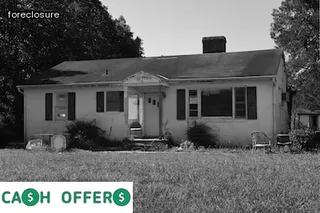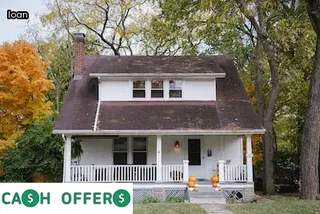Foreclosures in Colorado can be a stressful and confusing process. It is important for homeowners to understand the foreclosure process in the state, including all of the steps involved and how long each step takes. The timeline for a foreclosure in Colorado can vary from case to case, but there are standard steps that generally occur throughout the process.
First, a lender has to provide written notice that they are initiating foreclosure proceedings. After this notice, homeowners usually have between 30-90 days to work with their lenders to avoid foreclosure or find an alternative solution. If no agreement is reached during this time period, the lender will file a complaint with the court.
This is followed by a summons being issued and delivered, which then gives homeowners 20 days to respond. After this response window closes, the court will hold a hearing to determine who is responsible for any payments due on the property and whether or not foreclosure should proceed. If it does move forward, an auction will then be scheduled where third parties can bid on ownership of the property.
Finally, if no one bids on the property at auction or if no other arrangement is made between homeowner and lender prior to auction day, title of ownership of the property transfers back to lender. Although this timeline may seem daunting, it’s important for individuals facing foreclosure in Colorado to understand their rights and options throughout each stage of the process so they can make informed decisions about their future home ownership situation.

In Colorado, the foreclosure process is a lengthy and often complex legal action where a lender takes ownership of a property from a borrower who has failed to make payments on their mortgage. The timeline for the process can vary greatly depending on the lender, complexity of the case, and other factors.
Foreclosure begins with a Notice of Election and Demand which is sent to the homeowner, informing them that they are in default and must take action. If no response is received within thirty days, then the lender will file an official complaint with the court.
The homeowner then has twenty days to respond to this filing, after which the court will grant a judgment of foreclosure. The foreclosure sale will be scheduled at least thirty days later and must be advertised for several weeks prior to that date.
All bidders must be present at this sale to place their bids. Finally, once all bidding is completed, ownership of the property is transferred to the highest bidder.
In Colorado, before a home can be foreclosed on the lender must first send a Notice of Default to the borrower. This document outlines how much the borrower owes and how long they have to pay it.
Once this notice has been sent, the borrower has 90 days to make their payment or work out an alternate arrangement with their lender. If no agreement is reached within that 90-day period, the foreclosure process can begin.
The lender will then file a complaint with the court and serve the homeowner with a summons; this is when foreclosure officially begins in Colorado. In most cases, homeowners who fail to respond to these documents will have their home sold by auction approximately three months after receiving the summons from their lender.

In Colorado, homeowners have certain rights when it comes to the foreclosure process. The state's Foreclosure Prevention Act of 2008 outlines the steps that a lender must take before starting the foreclosure.
This includes the creation of a notice of default, which gives the homeowner an opportunity to pay off their mortgage and remain in their home. The homeowner is also entitled to receive written notice from the lender at least three months prior to any legal action being taken.
Additionally, if the homeowner qualifies for a loan modification or other workout program, they are given an additional 90 days before foreclosure proceedings can begin. Homeowners should be aware that they can challenge any attempt by lenders to foreclose on their home, as well as any fees and charges associated with it.
Furthermore, any disputes between lenders and borrowers must go through mediation prior to going to court. Ultimately, it is important for homeowners to understand and protect their rights in Colorado during the foreclosure process.
In Colorado, a foreclosure begins when the homeowner fails to make their mortgage payments and the lender files a Notice of Election and Demand with the county clerk.
This document serves as a formal demand for payment from the homeowner and is typically sent after 3-4 months of missed payments.
The lender must also publish a copy of this notice in a newspaper of general circulation in the county where the property is located.
Once these steps are completed, the foreclosure process officially begins and moves forward according to Colorado's timeline.

In Colorado, there are two primary types of foreclosure proceedings: judicial foreclosure and non-judicial foreclosure. Judicial foreclosure is when a lender files a lawsuit against the homeowner to obtain a court order allowing them to foreclose on the property in question.
This type of foreclosure is usually used when the homeowner has defaulted on their loan payments but does not have any equity in their home. Non-judicial foreclosures, also known as “power of sale” foreclosures, are initiated without going through the court system.
During this process, the lender can repossess the home without obtaining a court order or filing a lawsuit against the borrower. While non-judicial foreclosure is faster than judicial foreclosure, it can still take several months for the process to be completed.
In both cases, it is important to note that homeowners still have certain rights during this period and can work with their lenders to try and avoid foreclosure altogether.
Moving out after foreclosure in Colorado can be a difficult process, but it is important to understand the timeline and process of a foreclosure in order to make sure that you are doing everything correctly. Foreclosures in Colorado can take anywhere from three months to over a year depending on the lender, so it is important to know the steps involved and what your rights are as the borrower throughout this time.
During the foreclosure period, lenders will provide notices of sale, often times giving borrowers time to try and avoid foreclosure. If this does not work out, lenders will then issue a notice of eviction which must be responded to within 14 days or else they may pursue other means in order to regain possession of the property.
It's important for those going through foreclosure in Colorado to stay up-to-date on all paperwork associated with their case as well as any deadlines that need to be met in order for them to remain compliant with state laws. Knowing your rights during this difficult process can help ensure that you have an easier time transitioning into your new home.

Stopping a foreclosure in Colorado can be an arduous process but there are several strategies that can be employed to delay or stop the foreclosure process. Firstly, Colorado state law requires lenders to provide homeowners with a Notice of Intent to Foreclose before beginning the foreclosure process.
This gives homeowners time to consider other options and reach out for help. Secondly, borrowers may be able to work with their lender to negotiate a repayment plan or loan modification in order to keep their home.
These agreements should be reviewed by an attorney and signed by both parties before becoming legally binding. Finally, filing for bankruptcy may halt the process as it will put an automatic stay on any collections activity from creditors.
It is important to seek legal advice when considering this option as it may have serious implications for your credit score and other debts you owe. Ultimately, if you’re facing foreclosure in Colorado, understanding your rights as a homeowner and taking action quickly can help you avoid losing your home.
In Colorado, after the foreclosure sale is completed and the title is transferred to the new owner, the original homeowner may still be responsible for any remaining debt. This is referred to as a deficiency judgment.
In Colorado, the creditor must file a lawsuit within six months of the foreclosure sale to pursue the deficiency judgment. The court process may take up to two years or more depending on how quickly it proceeds.
If there is a deficiency judgment granted, the court will decide what type of payment arrangement should be made between the creditor and debtor. In some cases, an installment plan may be approved by the court or it may be determined that all of the amount must be paid off at once.
The court could also order that no payment needs to be made due to other mitigating factors such as unemployment or disability.

Financial assistance is available for homeowners facing foreclosure in Colorado. Depending on the homeowner's situation and financial stability, there are several options to explore when looking for help in avoiding or delaying the foreclosure process.
For instance, a loan modification may be an option if the homeowner can prove that their current financial situation has changed from when they originally took out the loan. Additionally, government agencies such as HUD offer counseling services and advice on how to approach a lender about potential solutions.
Homeowners should also examine their state's laws regarding foreclosure and look into any and all possible tax breaks or waivers available to them. Ultimately, with careful consideration of all resources available and diligent communication with lenders or housing counselors, homeowners may be able to avoid foreclosure altogether or at least delay it until more favorable financial conditions arise.
Colorado is home to a wide variety of mortgage loans, with many different terms and payment options. Colorado homeowners should be aware of the state's foreclosure process and timeline in case they find themselves unable to make their loan payments.
Generally, foreclosure in Colorado takes between four and five months from start to finish, but the specific timeframe can vary based on the lender, type of loan and other circumstances. The foreclosure process begins when a homeowner has missed at least three consecutive monthly payments.
At this point, the lender will send out a Notice of Election and Demand for Payment. If payment is not received within 30 days, foreclosure proceedings may begin.
During this period, homeowners can still catch up on payments and avoid foreclosure by negotiating with their lender or seeking assistance from housing counselors or legal services. Once a Notice of Default has been issued and published in the local newspaper, it is important for homeowners to take action quickly or else they risk losing their property through an auction sale.
Finally, after any redemption periods have expired or if no redemption occurs then a Certificate of Sale is issued which completes the foreclosure process in Colorado.

Failing to make mortgage payments on time can have dire consequences for homeowners in Colorado. It can lead to a foreclosure process that could take anywhere from three months to two years, depending on the circumstances.
Missing payments can damage a homeowner's credit score and cause them to fall into debt with late fees and legal costs. The lender may also sue the homeowner if they are unable to make up missed payments.
Homeowners should be aware of their rights during a foreclosure and understand how long it will take before their home is taken away from them. Taking action sooner rather than later can help alleviate some of the financial stress associated with missing payments and help them avoid further damage to their credit score.
Foreclosure is a legal process that can take some time to complete in the state of Colorado. The length of time for a foreclosure in Colorado depends on the county you live in and whether or not it's a judicial or non-judicial foreclosure.
Generally, it takes anywhere from two to nine months for a Colorado foreclosure. In a judicial foreclosure, the lender must file a lawsuit with the court and obtain an order of sale before they can foreclose on the property.
A non-judicial foreclosure is usually faster, as it does not require court action and can be completed within two months. Whether you're facing foreclosure or trying to understand the timeline of a Colorado foreclosure, knowing your rights and researching your local laws can help you make informed decisions throughout the process.

Arapahoe County serves as an important resource for anyone interested in learning more about foreclosures in Colorado. The county provides comprehensive information on the entire foreclosure process, including timelines and other relevant details.
With the help of their website, homeowners can find out what steps to take during a foreclosure, learn about options for resolving defaulted loans, locate available counseling services and contact information for local agencies that may be able to provide assistance. Additionally, Arapahoe County has dedicated staff members who are available by phone or email to answer any questions regarding foreclosures and the state's foreclosure laws.
This ensures that homeowners have access to all the resources they need to make informed decisions about their financial future.
When facing foreclosure in Colorado it is important to understand the roles of all relevant county offices. Depending on the county, these may include the County Clerk and Recorder’s Office, the Public Trustee’s Office, and any other applicable office designated by state law.
The County Clerk and Recorder’s Office is responsible for recording documents related to foreclosure such as notices, liens, and deeds. On the other hand, the Public Trustee’s Office handles certain functions of a foreclosure like sending out notices of sale or administering a sale of property.
Furthermore, each county can have additional offices that handle different parts of the foreclosure process. For example, some counties may have an office that manages foreclosures involving veterans or mobile homes.
To ensure you know all there is to know about your specific situation it would be wise to contact your county offices for more information about their roles in foreclosures.

Foreclosure is a stressful and unpleasant process, but there are steps you can take to avoid it. When it comes to Colorado, understanding the timeline of the foreclosure process is essential for homeowners looking to protect their property.
With that in mind, here are some tips for avoiding foreclosure in Colorado: First, consider refinancing your mortgage loan with a lower interest rate or longer repayment term. Additionally, if you’re having trouble keeping up with payments, contact your lender as soon as possible and explain your situation - they may be able to provide assistance.
Also, explore government programs like the Home Affordable Modification Program (HAMP), which can help reduce monthly payments on mortgages held by Fannie Mae or Freddie Mac. Finally, if you’re already facing foreclosure in Colorado, don’t give up! There are many resources available that can help walk you through the timeline and work out potential solutions.
When facing a foreclosure in Colorado, it is important to understand the state's legal process and timeline. The first step is to understand the different types of foreclosures available in Colorado.
For instance, there is judicial foreclosure which requires a court order, and non-judicial foreclosure which does not require court involvement. Knowing this information can help homeowners decide how best to proceed with their foreclosure.
Additionally, homeowners should be aware of certain legal strategies that may help them during the foreclosure process. These strategies include seeking intervention from government programs such as HUD counseling services or filing for bankruptcy protection under Chapter 13 of the U.
Bankruptcy Code. Finally, homeowners should also consider speaking with an experienced attorney who can provide advice on the potential outcomes of each strategy and any applicable laws in Colorado that could affect their case.

If you are struggling to make your mortgage payments in Colorado, the first step is to reach out to your lender and explain your situation. Depending on the type of loan, lenders may be willing to offer several options for restructuring payment plans, such as a loan modification or forbearance.
A loan modification involves changing the terms of the loan, such as lowering the interest rate or extending the length of time for repayment. Forbearance is an agreement between lenders and borrowers that temporarily suspends payments or reduces their amount until a certain period of time has passed or until other conditions have been met.
If neither of these are possible, it may be necessary to consider other options such as refinancing with a different lender or selling the property.
The first step in a foreclosure in Colorado is for the lender to file a Complaint for Foreclosure with the court. This complaint outlines the amount owed by the borrower and requests that the court enter a judgment of foreclosure against them.
The borrower will then receive notice of the complaint, which includes information about how to respond and how long they have to do so. After that, a motion is filed with the court by either side asking that the case move forward.
If there are no responses or appeals from either party, then the court will issue an Order of Sale, which orders that the property be sold at auction.

Foreclosures in Colorado are governed by the state's foreclosure laws, which are designed to protect both lenders and borrowers. The process begins when a homeowner misses payments on their mortgage.
After a period of missed payments, the lender will send a Notice of Default to the homeowner. Once this notice is sent, the borrower has 90 days to make up the past due amount or cure their loan.
If they fail to do so within that timeframe, the lender can then initiate foreclosure proceedings. During this stage, a third party trustee will be appointed to manage the sale of the property.
The trustee will then advertise and market the property for sale in accordance with state law. After several weeks, an auction will be held where potential buyers can bid on the home.
If no bids meet or exceed what is owed on the loan, then the bank may buy back the home and become its new owner. From start to finish, a foreclosure in Colorado typically takes six months or more to complete.
In Colorado, the amount of time it takes to complete a foreclosure depends on a variety of factors, such as the type of loan and the lender's process. However, in most cases, if you miss three or more mortgage payments in Colorado, your lender can begin the foreclosure process.
This means that your property is at risk of being sold by the lender to satisfy any unpaid debt. It is important to note that when lenders are initiating foreclosure proceedings in Colorado, they must adhere to state law.
As part of this process, lenders must provide notice to borrowers before beginning foreclosure proceedings. This notice gives borrowers an opportunity to catch up on past due payments or consider alternative options for avoiding foreclosure.
If a borrower does not respond to this notice or fails to make their mortgage payments after receiving it, then lenders may proceed with formal foreclosure proceedings. The entire foreclosure process typically takes between three and nine months in Colorado; however, it can take longer depending on certain circumstances.
In Colorado, the foreclosure process can take anywhere from two months to several years. It all depends on how far behind you are in making your payments.
Generally speaking, if you are more than three months behind on your mortgage payments, the lender has the right to begin the foreclosure process. However, there are other factors that can affect this timeline such as whether or not you have a legal defense against foreclosure and if any government intervention is required.
In cases where government intervention is needed, it can add several months to the timeline. Additionally, if the lender chooses to use a judicial foreclosure process instead of a non-judicial one, it can also increase the time it takes for a foreclosure to be completed.
Ultimately, understanding your rights as a homeowner and knowing what steps need to be taken throughout the entire process will help ensure that your foreclosure proceedings go as smoothly and quickly as possible.
Rule 120 is a foreclosure process used in the state of Colorado. This process allows lenders to foreclose on a property after 120 days of delinquency on the loan, if certain criteria are met.
The foreclosure process in Colorado typically begins with the lender sending out notices to the borrower. If the borrower fails to respond or make payments, the lender will file documents with the court, beginning what is known as a judicial foreclosure.
During this time period, if an agreement is reached between borrower and lender regarding payment arrangements, Rule 120 can be avoided. If no agreement is reached, then the property will be sold at auction after 120 days of delinquency.
The proceeds from this sale are used to pay off any remaining debt owed by the borrower.
In Colorado, the redemption period for foreclosures is typically three months long. During this time period, the borrower has the right to redeem their property by paying off the entire loan balance plus any additional fees and costs that have accumulated.
The redemption period begins when a notice of foreclosure sale is filed with the court and ends when a deed is recorded transferring ownership of the property from the homeowner to the lender. If the homeowner does not take action before the end of this three-month window, then their title to the property will be extinguished and foreclosure will be complete.
So it's important for homeowners in Colorado to understand their rights during this crucial timeframe in order to avoid losing their home.